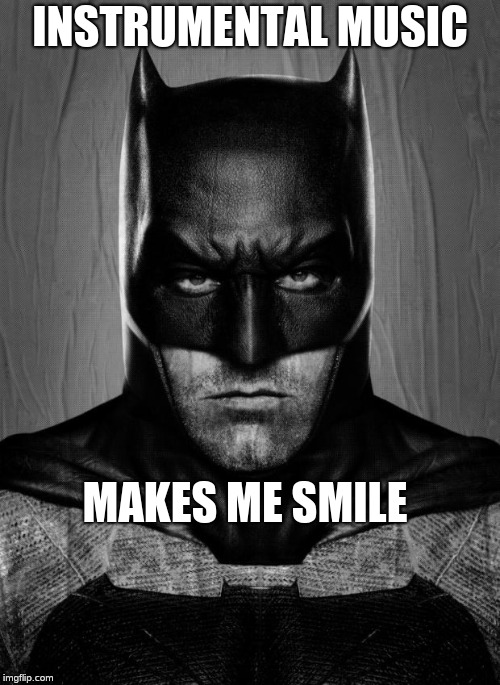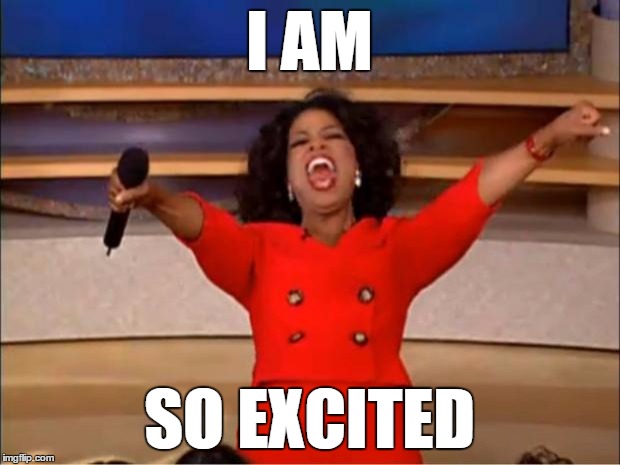The Definite Guide to Pick the Correct Music While Working
I only know few semi-god-concentration-giants who don’t work with headphones, while being productive at their company’s -usually noisy- office and I really admire them.
For the rest of us co-mortals, we need our headphones/earphones, to make it through. But have you ever thought, what should you listen to, at work? And I mean, in terms of best value regarding your current state.
Below are some hints, about how you should pick the sound that will entertain your ears. Of course, they are not a silver bullet. It is the outcome of my personal experience and tons of experimentations during the past years.
But first, what equipment should I use to listen?
Thanks for asking. For starters, please, do not listen from your computer’s speakers directly. No one gives a f*ck about your music taste and no one needs your help in order to entertain himself. And now that we got this fact sorted, let’s answer the question. :-)
You can use any pair of semi-high-quality headphones/earphones. Avoid buying very cheap ones, but if you don’t have the budget, don’t go to ultra-quality-noise-canceling ones, even though they will totally upgrade your hearing experience.
Personally, I use these and I am very happy with their performance and level of sound quality, but I would love to try a portable and budget noise cancellation pair.
Inspect your mental state and your tasks ahead
In order to decide what kind of sound will keep company to my ears, I first take an “inside look” on how I feel and what my task ahead is. There is a different kind of music to hear if you want to do “shallow work” and reply to your emails comparing to the one you would hear if you were designing the next Mars Rover(wink-wink Elon Musk).
Without further ado, let’s start with the suggestions. All sound sources, are summed up in the last section of the article. I will focus on the most common cases, as the potential combinations are too many to fit in an article.
Mental state: Mommy-I-dont-want-to-go-to-school
Task: Mentally challenging:
Here is the Mars Rover case. My first choice would be beta/gamma binaural beats. You can help yourself to enter the zone more easily and temporarily reduce any lack of motivation, if you use them.
It is not a magic wand(if you want to procrastinate by all means and at all costs, you will eventually procrastinate) but it has helped me, quite a few times, especially on cases like “last day before my 10-day holidays”.
You can find binaural beats everywhere, from YouTube and Spotify to mobile apps, but my favorite place is a sound generator called fractal panda.
Task: Not trivial, but I have done it a lot of times:
If you are a frontend developer, that would be to make a login and a registration form, from scratch. Or if you are Batman, to drive the Batmobile.
In this case, I would pick instrumental music, maybe from my favorite genre(that would be power metal). Why instrumental and not my favorite band, I hear you asking, my wonderful reader?

The “favorite band” choice is great, but lyrics might distract you with higher probability than pure music. Up to you though, feel free to experiment a bit. If you really insist, try and put a couple of songs in a loop, so that your brain is not reacting to ‘shiny-new-songs’.
Lo-fi music(how about freecodecamp radio, ambient sounds like trains and rain (have you used ambient mixer and its great collection?) and classical music are good choices as well. As always, YouTube and Spotify, are our best friends.
Task: I need creativity, as I am a content creator:
I encourage you to utilize the coffee-shop effect. As Barbara Oakley would mention in her great MOOC Mindshift working in a coffee shop would help you enable the diffuse mode of your brain.
I can’t brag that it had helped me a lot, but I recognize not everyone is the same. Instead, I see that calm violin tracks are giving me a good shot of creativity, so I am tapping on them when I have the chance.
I also know that some people enjoy the sound of a fan for that matter, although most of us find it annoying.
Task: Chilling and reading:
Ah, that wonderful time of the day. Chilling time, to be precise. I think it goes without saying that you should pick your favorite band(s). Relaxing genres(like jazz), are a good fit, as well. Especially, if it is before bedtime. Also, it is worth giving alpha/theta/delta binaural beats a chance.
Now about reading:
- If it is reading for university/exams in general(or for an equally important purpose) consider monotonous sounds, without lyrics. My favorites are violin(yep, again) and train sounds accompanied by thunderstorms(not sure why maybe I get the illusion of bad weather and thus I find no reasons to procrastinate).
- If it is casual reading, like reading your favorite novel, then my best bet would be nature sounds. Forest and creek sounds always bring me good memories and put me in a relevant mental state.
Mental state: Bring it on:
Here things are easier.

First of all, I would like to insist you to stay away from gamma binaural beats. You are already motivated you have a good amount of beta/gamma activity in your head, so under normal circumstances, there is no need to enforce it even more.
Binaurals are considered safe in general with no health side effects, but you might get mentally exhausted easily, in such case.
Otherwise, using the same path to choose your perfect music track, as in the unmotivated state, will work for most people. Though, my favorite choice here is to pick, a playlist from my favorite band and increase the volume(only a bit, because we only get one pair of ears).
I would stick to up beating tracks, as they help you feed your enthusiasm through music.
That’s all folks
Thank you for reading this article. Let’s start by giving our best work-company, music, the attention it deserves. Below you can find links to all the sources I mentioned above. As always, I would be more than happy to listen to your own “music strategies”.